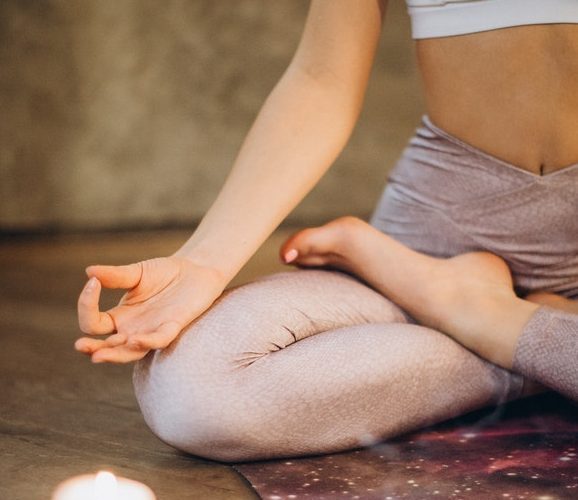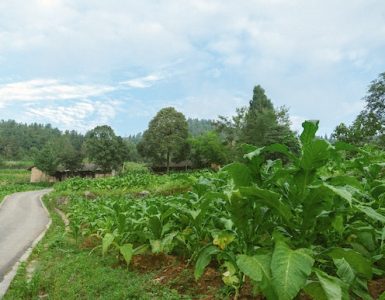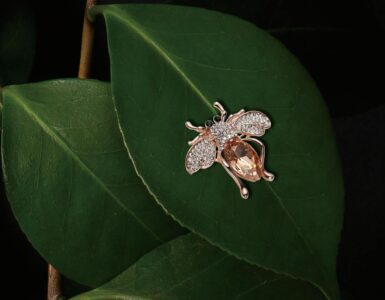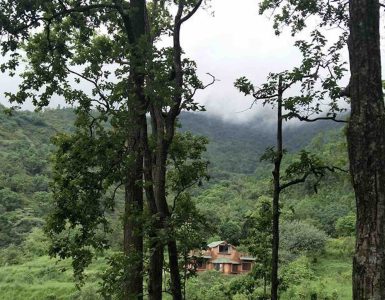Yoga gives us strength, energy, and consciousness, paving the way to connect with our inner nature.
While Yoga has numerous Asanas (Poses), incidentally, many of these practices and yoga poses are inspired by Nature, specifically its wonderful beings – Animals.
Many of these Asanas are prefixed with the Sanskrit names of the beings from which it is inspired.
Animal and Yoga Poses
Here is a compilation of yoga poses that animals inspire with a brief description and benefits.
![]()
Camel Pose – Ustrasana
In this pose, the practitioner has to kneel down and bend their torso backwards to touch their two feet.
Ustrasana comes from the Sanskrit word ustra means camel.
Camel pose is a great stretching exercise that improves posture and strengthens back muscles.
![]()
Cat Pose – Marjaryasana and Cow Pose – Bitilasana
Cat pose and Cow pose are similar in that practitioners have to come in a cat-like position (on all fours), and the knees should be directly under your hips and your palms facing down under your shoulders.
Cat pose and Cow pose are easy Yoga exercises and bring flexibility to the spine.
![]()
Cobra Pose – Bhujangasana
Cobra pose or Bhujangasana is an easy pose that is also part of Sun Salutation (Surya Namaskar), where the practitioner needs to lie down on their abdomen and slowly lift their torso using the support of the hands.
Bhujangasana comes from the word bhujanga, meaning cobra. Cobra pose is a good exercise to tone your abdomen and improve blood circulation.
Crane Pose – Bakasana and Crow Pose – Kakasana
![]()
Bakasana (Crane Pose) and Kakasana (Crow Pose) look similar in that the practitioner needs to lift their entire body using their hands, but the way the body is lifted is different in both poses.
Bakasana is derived from the Sanskrit word Baka, meaning Crane; this practice, while Kakasana comes from the Sanskrit word kaka, meaning Crow. The yoga postures improve balance and core strength.
Dolphin Pose – Ardha Pincha Mayurasana and Downward-Facing Dog – Adho Mukha Svanasana
![]()
Ardha Pincha Mayurasana (Dolphin Pose) and Adho Mukha Svanasana (Downward-Facing Dog Pose) are similar. The practitioner needs to make an inverted V shape with their body by lifting their torso from the middle.
In Dolphin Pose, you can use the forearms to rest on the ground, while in Downward-Facing Dog Pose, the palms of your hands will be supporting your body.
These Yoga Poses strengthen the shoulders, arms, upper body, and legs.
![]()
Eagle Pose – Garudasana
Eagle Pose is done in the standing position, by bending your knee and making a peculiar shape with both your hands.
Garudasana is derived from the Sanskrit word Garuda, loosely meaning Eagle. This Yoga Pose improves balance and strengthens your calf muscles.
Firefly Pose – Tittibhasana
Firefly Pose is similar to Crane Pose, where the practitioner needs to lift their entire body using their hands and extend their legs forward.
The name Tittibhasana comes from the Sanskrit word Tittibha, which means small insect, fly, or firefly. This Yoga posture strengthens the back and abdominal muscles.
Fish Pose – Matsyasana
In the Fish Pose, the practitioner needs to lie on his back and lift the torso a little upward by rising up on the elbows and drawing the shoulders back.
Matsyasana is derived from the Sanskrit word Matsya, which means Fish. The Fish pose helps to relieve tension in the neck and shoulders.
Half Frog Pose – Ardha Bhekasana
For the Half frog pose, the practitioner needs to make the Cobra Pose and then slowly bend one of their legs from their knees so that it touches the same side of the buttock. You can use your hands to hold the position.
The Half Frog pose strengthens the back while gently opening up the shoulders, chest, and thighs
Monkey Pose – Hanumanasana
Monkey Pose is similar to a leg split, where the practitioner needs to stretch both their legs to make it closer to 180 degrees.
Hanumansana is derived from the Sanskrit word Hanuman, which is the name of the Hindu God.
Monkey Pose stretches help to strengthen your abdominal organs.
![]()
Peacock Pose – Mayurasana
In the Peacock Pose, the practitioner needs to lift their body using the strength of their hands, resting on the palms, such that the body becomes parallel to the ground.
Mayurasana is derived from the Sanskrit word Mayur, which means Peacock.
Peacock Pose strengthens the core muscles, arms, and thighs.
![]()
Pigeon Pose – Kapotasana
In the Pigeon Pose, the practitioner needs to move one of their legs behind and the other leg in front, such that it makes an L shape.
Kapotasana is derived from the Sanskrit word Kapota, which means pigeon.
Pigeon Pose increases flexibility and opens the hip area.
Yoga and Nature beings
Apart from animals, yoga poses are inspired by Nature’s creations as well. Here is a list of yoga poses that are inspired by other natural things in the environment.
![]()
Lotus Pose – Padmasana
Lotus Pose is a meditative pose where the practitioner needs to sit comfortably with spine erect, crossing their legs, and hands resting on their knees.
Padmasana is derived from the Sanskrit word Padma, which means Lotus.
Regular practice of the Lotus Pose relaxes the mind and brings blood pressure under control.
![]()
Mountain Pose – Tadasana
In the Mountain Pose, the practitioner needs to stand upright with feet facing forward, parallel to each other. Then, as you inhale, you need to raise your arms above your head and interlock your fingers with palms facing upwards.
Tadasana is derived from the Sanskrit word tada, meaning mountain. Mountain Pose enhances stability and fosters inner strength.
Tree Pose – Vrikshasana
Tree Pose is a common asana, the practitioner needs to stand upright and bring the sole of one of the feet to touch the side of the thigh of the other leg.
Vrikshasana is derived from the Sanskrit word Vriksha, which means Tree. Tree Pose can improve your balance and posture.
Wrapping Up
If you are a beginner, Yoga Poses should be done taking full precautions and under the guidance of a Yoga teacher. In the Yoga pose, a lot of focus is on breathing and the right posture, hence, the practitioner must follow the instructions of a coach.
The purpose of this article is only to arouse the interest of all animal and nature lovers in Yoga and its benefits.
We have created a short video that showcases animal-inspired Yoga poses, You can view it on the Change Started YouTube channel and share it with your friends to inspire them to start their Yoga journey.
Book Recommendations:
Light on Yoga by B.K.S. Iyengar is often regarded as the best book on modern yoga. It includes detailed instructions and photos of poses, along with a 300-week practice plan.
Yoga Anatomy by Leslie Kaminoff and Amy Matthews is an excellent book for understanding how the body works in each pose.






Add comment